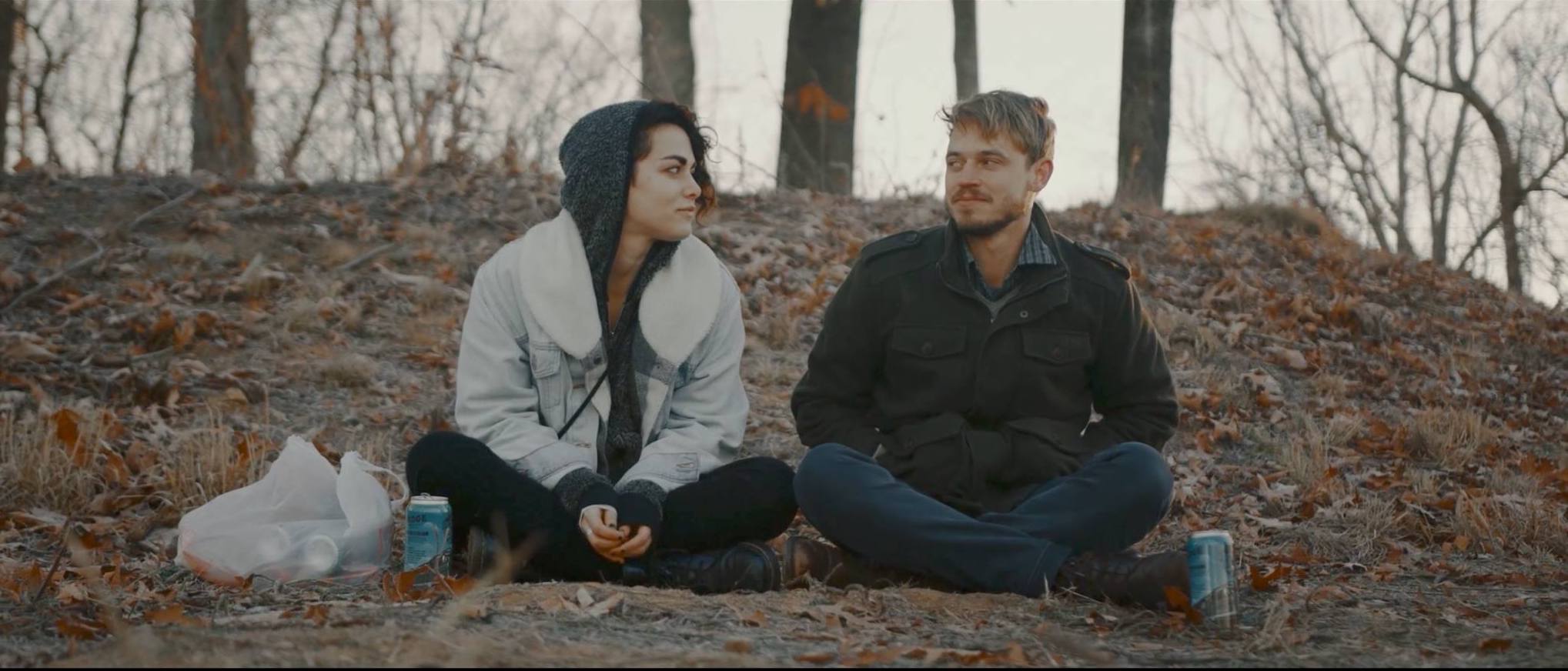
MPAA Rating: NR | Rating: ★★★
Release year: 2018
Genre: Drama Director: Joshua Overbay
Joshua Overbay’s Luke & Jo reaches for the tradition of Coppola’s Lost in Translation or Linklater’s Before trilogy, lost souls colliding in unlikely ways and environments, subsequently inspiring and bettering each other. Perhaps autobiographically inspired, Luke (Erik Odom) is an aspiring indie filmmaker while Jo (co-writer Andie Morgenlander) is a musician/party-goer/wanderer. Their paths cross in Asheville, NC when a drunken Jo nearly hits a despondent Luke with her car (he was walking in the middle of the street at night), prompting a series of interactions and subsequent collisions as their life journeys intertwine in unexpected ways.
There’s a quote attributed to Howard Hawks about how a good movie is “three good scenes and no bad scenes.” I’d say Luke & Jo has about six good scenes and 2-3 bad ones, which mathematically evens it out to Hawks’ parameters; its imperfections highlight its achievements. The lighting, camerawork, color grading, and performances are noticeably (perhaps intentionally) inconsistent. Handheld cameras and close-ups switch suddenly to still or wide shots, and the rhythm of these edits is hard to grasp. Some scenes of dialogue feel improvised and spontaneous, as if Overbay’s direction to the actors was merely “have an argument!” and let them run free. In other scenes, the dialogue is sparse or non-existent, and much of the emotional heavy-lifting is done via Andie Morgenlander’s vibrant blue eyes. This formal inconsistency gives the film a frantic, uneven tone, but may actually play to the narrative’s strengths. Both Luke and Jo are feeling totally unsettled with both their artistic ventures and their relationships–he in his marriage, she with her father–and this unsettledness plays out not only in the story, but in the formal aesthetic. It’s experimental, as if both Overbay and Morgenlander are trying out new artistic ventures, even as Luke and Jo are doing the same.
I found Overbay’s 2014 film As It Is in Heaven to be a haunting, slow-burn thriller and a great example of recent “spiritual” cinema. While the cinematography and story are remarkably different in Luke & Jo, Overbay is consistent in his deep character studies of people trying to discern their vocational callings, even turning to spiritual guidance for assistance. One of those good scenes I mentioned is when Luke enters a church–Jo’s church actually, which she mentions in passing during an earlier late-night conversation–to just sit and be silent following a professional failure to sell his movie script. The film treats spirituality and religion not as a crutch nor as a trope, but as something these two characters tacitly wrestle with, the concreteness of their circumstances colliding with the transcendent. Odom is good as Luke, though he’s often reduced to a quietly teary-eyed supporting role next to Morgenlander’s performance, which holds the film together as she expresses herself less in her words and more in posture and action. Even when the film threatens to be overturned by convention–particularly the manic pixie dream girl trope–Overbay is clearly interested in asking deep questions in the midst of ordinary circumstances, and he also clearly loves his characters enough to treat them with a dignity and depth that go beyond cliches. Even if Luke & Jo isn’t artistically in the same class as Lost in Translation or the Before trilogy, it’s at least striving to be, showing signs of Overbay’s and Morgenlander’s artistic visions, both the artists they are and those they want to become.
IMDB Listing: https://www.imdb.com/title/tt6408774/
Leave a Reply